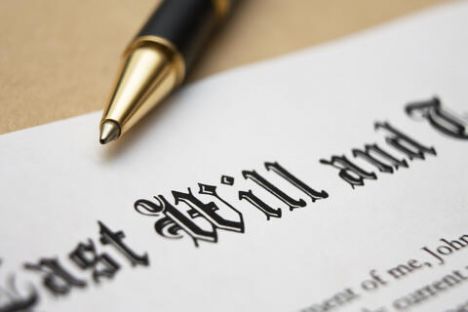
UK and Spanish Inheritance law differs, so it is important to have a Spanish Will in place with a clause that states you wish to be governed by the law of your nationality. With this clause you will be able to freely dispose of your assets in Spain to whom you wish, including charities.
Therefore when making a Will in Spain it is important to have a clause inserted in the Will stating that you wish to be governed by the law of your nationality, as this will then allow you to freely dispose of your assets in Spain how you wish.
UK legislation allows free disposal of your assets therefore you can name any beneficiary you please, including charities.
Spanish law differs to UK law whereby you cannot disinherit your children or relatives in the event of your death, as they have “legitimate rights”.
Therefore if you do not have a clause stating that you wish to be governed by UK law, Spanish law will prevail.
Information Required to Prepare a Spanish Will
- Copy of passport
- NIE Number
- Confirm profession (or retired)
- Marital status
- Maiden name
- Permanent address
- Mother and Father's full names, and state (whether alive or deceased)
- List of all previous marriages plus childrens names from those marriages / relationships
- Name first beneficiaries (if couples, usually partner to partner in the first instance)
- Name second beneficiaries: should you both go together who then do you want to become a beneficiary (eg. children, siblings or a charity)?
Once the draft is prepared an appointment at the notray is arranged to sign and register the will.
Spanish Wills & Inheritance
In the event of death your beneficiary will need to carry out the “Declaration of inheritance”, which has to be completed within 6 months of death occurring or tax penalties will be applied. In that time the beneficiary has to obtain an NIE number for tax purposes in order to inherit an asset in Spain. However no transactions can be started within the first 15 days of death occurring.
To carry out this process your beneficiaries will need to arrange a trip to Spain or appoint power of attorney from the UK for a representative to carry out the process here on their behalf.
It is important to make your loved ones aware that they are a beneficiary to an asset here, as there may be certain tax implications, and they will need to know where certain documentation is in order to carry out the inheritance transactions when you are gone.
Standard Documents Required
Original death certificate: if death occurred in the UK the death certificate will need to be sent to the Foreign, Commonwealth & Development office (FCDO) for the “Apostille”. This is to legalise the document for use outside of the UK in another country, in accordance with the Hague convention.
The Will: It is important that the beneficiary knows where the original notarised Spanish Will is in order to carry out the process. Or has a copy, and knows who holds the notarised original of the Will.
Copies of Passport and NIE/Residency card: for the testator, and the beneficiaries.
Original Escritura (property title deeds), and mortgage information (if applicable), and last IBI bill.
Details of any bank accounts, Investments or savings: bank statement showing name of bank, account number, account holder etc.
Details of any vehicles owned: copy of vehicle log book or the beneficiary knows where the originals are kept.
The Notary
All Spanish Wills are registered in a Central Registry in Madrid by the notary on signing of the Will. Once the first 15 days after death have passed, the beneficiary can ask the notary to request a certificate called the “Ultimas Voluntades”. This certificate confirms the last Will and Testament made in Spain, and who the rightful beneficiaries are. All of the inheritance transactions can then be completed via the notary for the transfer of the Spanish estate and assets.
Costs to Consider
Legal fees
Inheritance tax: The percentage of tax to pay depends on the relationship between the testator and the beneficiary, and the value of the estate.
Notary fees
Land Registry fees
Plusvalia tax: This is a municipal tax on the increment of land value, charged each time a property changes ownership, either through sale or inheritance. The amount depends on the length of ownership of the property, and which municipality the property comes under. Therefore the last IBI bill is also required to obtain the catastral value of the property.
